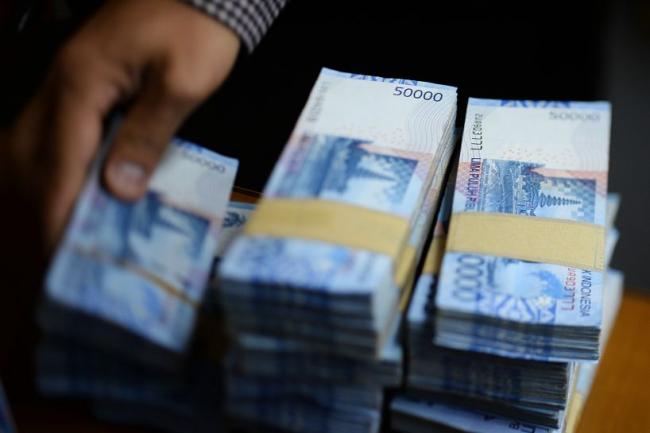(Bloomberg) -- Asian emerging-market currencies are cheap and an imminent U.S.-China trade deal means this is a good time to buy them, according to Pacific Investment Management Co.
The money manager favors Indonesia’s rupiah and Malaysia’s ringgit, and is considering adding positions in China’s yuan, said Roland Mieth, emerging-markets portfolio manager at the company in Singapore. Pimco has also reduced short positions on the trade-reliant currencies of South Korea, Taiwan and Singapore, he said.
“According to our valuation models, currencies around emerging markets are closer or close to the cheapest levels in the last two decades,” said Mieth at Pimco, which oversees about $1.9 trillion globally. “This is something that we recognize and are seeking opportunities to add to currencies.”
Emerging-market assets are rallying as the world’s two-biggest economies edge toward a deal that could stop their year-long trade war from worsening. White House economic adviser Larry Kudlow said Thursday talks on the first phase of a trade agreement with China were coming down to the final stages.
The Bloomberg JPMorgan (NYSE:JPM) Asia Dollar, which tracks 10 regional currencies against the greenback with the heaviest weightings for the yuan and Korean won, has risen 2.1% since sliding to a 10-year low in September.
Pimco says that while an easing of global trade tensions will help emerging-market assets, some offer better value than others.
“From a metrics perspective, I’d say the Indonesian rupiah is one that stands well, the Malaysian ringgit as well,” Mieth said.
Rupiah Positives
The rupiah is also attractive due to the “market friendly” make-up of the new Indonesia cabinet, which should be supportive for Indonesian assets, he said.
Indonesia’s President Joko Widodo last month reappointed former World Bank managing director Sri Mulyani Indrawati as finance minister in his new cabinet. Other recent additions have included Nadiem Makarim, co-founder of ride-hailing service Gojek.
The country’s interest-rate cycle is also about to turn, Mieth said. Bank Indonesia will make at most one-to-two more rate cuts in this phase, after reducing borrowing costs four times this year, he said.
Pimco may look to add positions in the yuan if the U.S. and China made visible progress in their trade talks, agreeing for example, to roll back tariffs, Mieth said. The money manager reduced short positions on the won, Taiwan dollar and Singapore dollar over the past three-to-six months as the currencies are now placed to perform better than they were when trade tensions were escalating, he said.
While Pimco is positive on most Asian emerging currencies, it is less so toward India’s rupee.
“The rupee is OK in the metrics, but I’d say given other dynamics in India we’re more hesitant to add risk in India at the moment, particularly given the recent downgrade by Moody’s,” Mieth said.
The rupee tumbled as much as 0.5% on Nov. 8 after Moody’s Investors Service cut India’s credit-rating outlook to negative on, citing a range of problems including a credit squeeze among non-bank financial institutions, a prolonged economic slowdown and rising levels of public debt.
Here are some of Mieth’s other views:
- Volatility will probably continue to fall or remain subdued next year in Asia due to low inflation
- Biggest risks for emerging markets are a possible reversal of U.S.-China trade progress and the threat of a global recession
- Negative sentiment from the unrest in Hong Kong isn’t likely to spill over to other asset classes in the region unless China takes more active measures, such as military intervention, but the probability of that happening is low
- Most emerging markets in Asia, except China and India, are ‘very close’ to the end of their interest rate cutting cycles
